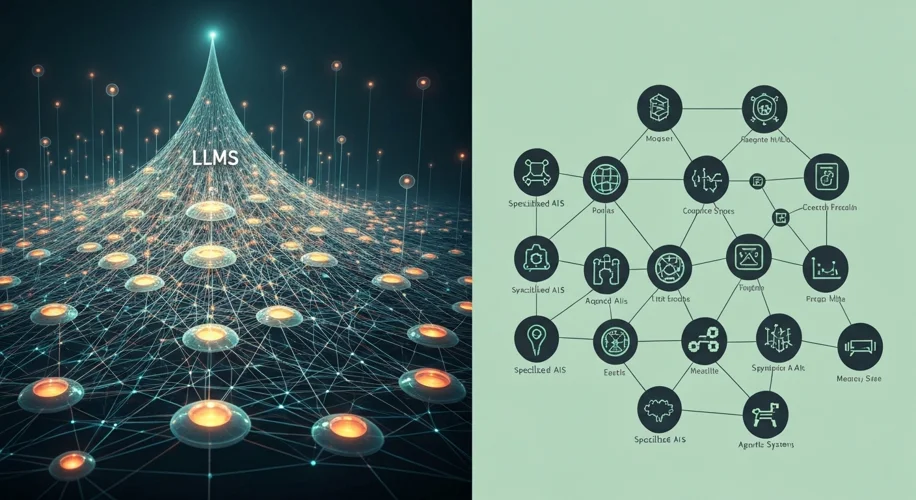Okay, so hear me out… we’ve all been blown away by Large Language Models (LLMs) lately. Think ChatGPT, Gemini, and all those other bots that can write poems, code, and even hold surprisingly decent conversations. It feels like AI is sprinting ahead, right? But what if I told you that the pace might be slowing down, and we’re starting to see some real limits with these LLMs?
It’s like endlessly feeding a super-smart student more textbooks. For a while, they get exponentially better. But eventually, you hit a point where adding just one more book doesn’t make them that much smarter. This is starting to feel like the situation with LLMs. Researchers are noticing diminishing returns when they try to scale them up even further with more data and more computing power. It’s getting incredibly expensive, and the gains aren’t as dramatic as they used to be.
And let’s be real, LLMs still struggle with a few things. Hallucinations – those confident-sounding but completely made-up answers – are still a persistent problem. It’s like the AI is guessing to fill in gaps, and sometimes it’s just wrong. Plus, true reasoning, the kind where you can deeply understand cause and effect or abstract concepts, is still a massive hurdle. They’re amazing at pattern matching, but genuine comprehension? Not quite there yet.
So, what’s next if LLMs aren’t the infinite rabbit hole of AI progress we thought they were? Well, there are other cool approaches bubbling up. We’re seeing more focus on AI agents, which are essentially AI systems designed to take actions and achieve goals in the real or digital world. Think of them as more proactive helpers. Then there are specialized AIs – models trained for very specific tasks, like medical diagnostics or scientific research, which often perform better and more reliably than general-purpose LLMs in their niche.
What does this mean for AI stocks? It’s a good question. If the massive scaling of LLMs hits a ceiling, companies that have bet everything on that approach might need to pivot. We could see more investment shift towards these agent-based or specialized AI systems. It’s not about AI stopping, but about the type of AI progressing. The timeline for AI to truly change society is still unfolding, but this shift might mean we see those changes come in different, perhaps more focused, ways than just a universally smarter chatbot.
It’s an exciting time, but it’s also a time for realistic expectations. The AI landscape is always shifting, and understanding these nuances is key to seeing where we’re really headed.

